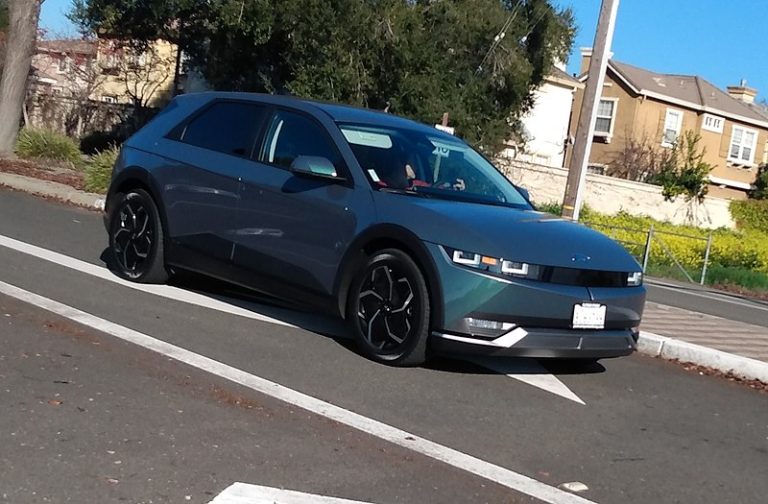Hot on the heels of Elon Musk’s electric vehicle (EV) giant Tesla, Hyundai, as well as fellow South Korean car producer Kia, are making waves in the EV market, with sales of their models surpassing several of their non-Tesla counterparts.
Hyundai on the rise
In early 2022, Hyundai and Kia both released two new EV cars — the Hyundai Ioniq 5 and the Kia EV6. Both vehicles broke right through sales charts, surpassing fellow competitors like the Nissan Leaf, Chevrolet Bolt and other non-Tesla-produced EVs, Bloomberg reported.
While Tesla still sells more cars than either Hyundai or Kia, the two South Korean companies were able to garner sales volumes, in a few months, that Tesla took an entire decade to achieve.
In May 2022, Hyundai and Kia were able to sell 21,467 of their cars combined, rivaling the Ford Mustang Mach-E, which was sold to 15,718 drivers.
“From an EV perspective, they’re really just kind of cleaning the floor,” Joseph Yoon, analyst at the automotive news outlet Edmunds, said, adding that, “I honestly don’t know if any dealers around me have any in stock.”
Success
You are now signed up for our newsletter
Success
Check your email to complete sign up
Hyundai is not a startup, having built its experience and products over years to leave several struggling automakers behind in the financial race.
According to Steve Kosowski, manager of long range strategy at Kia America, the design of the current vehicle began six years ago. During this time, the Chevrolet Bolt rolled out and Kia was in the works of conceptualizing a similar car, before they decided on something “far larger, sportier and swankier — at a slightly higher price,” Kosowski said.
“The thinking was, with the platform we have and the market understanding we have, let’s put together a really bold, breakthrough proposition,” Kosowski said. “We’re going to make a statement that Kia is here.”
As of now, the EV industry is starting to pick up steam in the U.S., with issues like climate change and gas prices driving the interest. However, choices for EVs are still limited, with only a handful of models being sold at less than $45,000. However, most of these more cost effective choices are considered small and “dated” like the Nissan Leaf.
Both the Ioniq 5 and the EV6 have sufficient cargo space to meet most people’s needs and their sizes fit comfortably into U.S. garages.
They both ride on the same modular platform, equipped with the same motors and batteries, and have “similar speed specifications.” They both also have pedals for “regenerative braking and bi-directional power.”
These two models are affordable enough to bring in orders from those with budgets small enough to buy a starter sedan, Yoon added.
“These two cars have come in kind of at the right price and the right size for a lot of buyers,” he said. “And I think there’s a level of inherent trust with a big manufacturer getting in the game with a mainstream.”
According to Kia, most buyers of the EV6 are comfortable with paying a premium, as the waitlist for the model stretches about six months long, and the average transaction price is “a few thousand dollars above the sticker price.”
“Our dealers are reporting that these cars are sold within hours,” Eric Watson, vice president of sales at Kia America, said.
According to Kosowski, the new Hyundai models are banking on “Tesla fatigue,” with first-mover sedans and SUVs flooding the market, and Hyundai owners remaining loyal to the company and its products.
Hyundai also plans to launch a new EV car every year for the next decade, while accelerating its EV production by spending $16.5 billion. By 2030, they hope to grab 12 percent of the global EV market.
Amidst Hyundai’s growing progress, the company has recently revealed the new Ioniq 6 — the successor to the Ioniq 5. Noticing Hyundai’s climb, Elon Musk himself commented, “Hyundai is doing pretty well.”
Tesla is also facing potential competition with German EV maker Volkswagen, which may very well rival Musk’s own company in the market.
READ MORE:
- Tesla Expected to Lose Throne to Volkswagen as World’s Largest Electric Vehicle Maker: Bloomberg
- Years of Surging Lithium Prices Show Signs of Turbulence as Electric Vehicle Makers Adapt
- ‘Voltswagen’ April Fool’s Gaffe Spotlights Difficulty of EV Paradigm Shift
- Tesla Continues to Grapple With Shanghai Lockdown Under ‘Closed Loop System’







